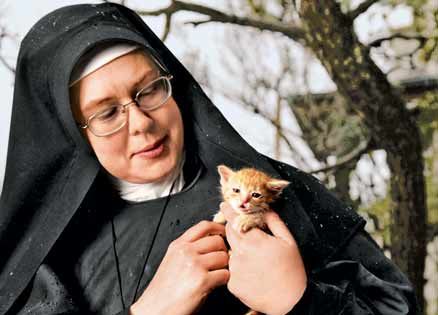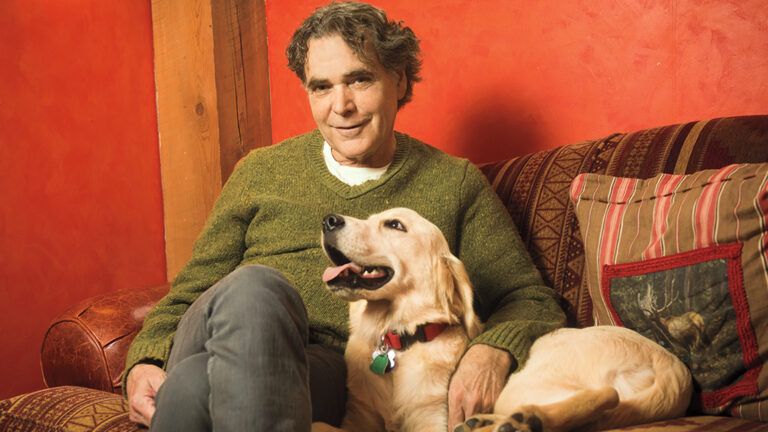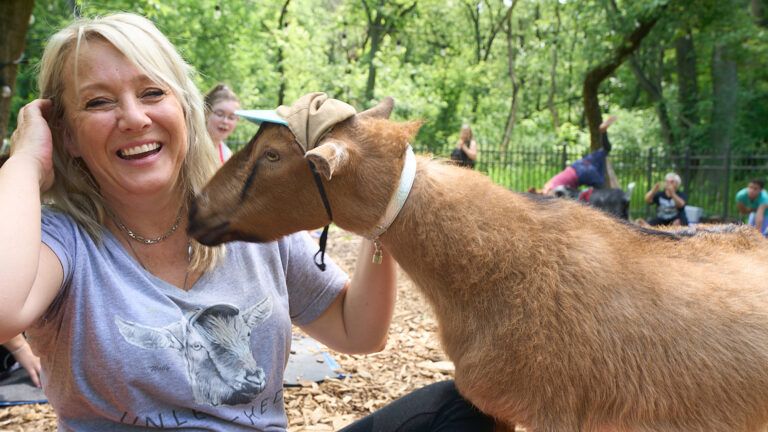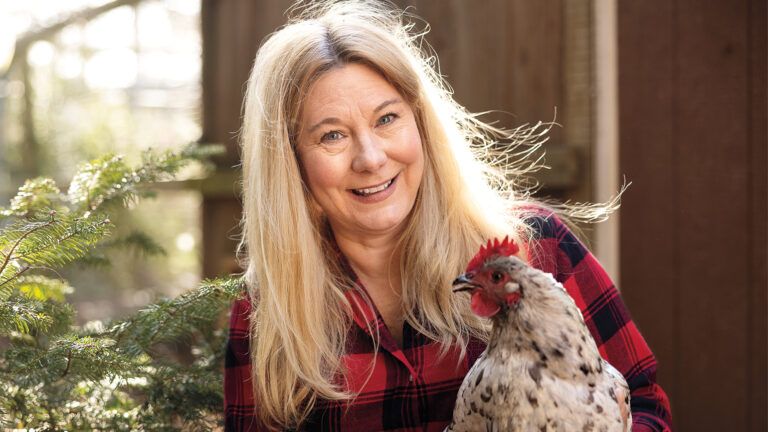I’ve been rehabilitating stray and abandoned dogs and cats and finding new homes for them for almost 30 years, and in that time, I’ve met quite a number of incredibly dedicated animal rescuers. But even I was amazed by the gentle yet fearless young woman I talked to this past spring, Sister Michael Marie, a Catholic nun with the Missionaries of the Sacred Heart in Clarksburg, Ohio. She has traveled the world as a relief worker with a special mission: to rescue animals in areas hit hard by natural disasters.
“They are all God’s creatures,” she says. “Helping animals also helps the people who love them. It’s just another way of serving the Lord.”
On March 11, Sister Michael Marie awoke to the terrible news that a massive 9.0-magnitude earthquake had struck northern Japan, triggering a tsunami that swept through coastal cities and villages, killing thousands and displacing hundreds of thousands more.
Soon the horror deepened into the worst nuclear crisis since Chernobyl in 1986. Partial meltdowns and radiation leaks at the Fukushima Daiichi nuclear power plant forced the evacuation of more than 200,000 souls.
Sister could only imagine how many animals had been stranded or injured, and she knew she needed to help. A month after the quake, she arrived in Japan with a team from Kinship Circle, an organization that runs an animal disaster-aid network and sends trained responders, all volunteers, to stricken areas. Some of the team cared for sick and injured animals. Others distributed pet food and clean water.
Sister Michael Marie provided a different kind of help—and hope. People at evacuation centers begged her to look for the animals they had left behind with a week’s supply of food and water, thinking they would be back home by then. Now that their towns were off-limits indefinitely because of the nuclear emergency, they were frantic.
Since she was allowed past police checkpoints into exclusion zones, Sister focused on locating stranded pets and farm animals and moving them to safer places like shelters and foster homes until they could be reunited with their human families. Sister was willing to risk earthquake aftershocks and exposure to radiation to rescue them.
Perhaps even better than most animal lovers, she understood the unique bond people have with their furry and feathered companions. After all, she had spent most of her 36 years around animals—living with them, raising them, nursing them when they were sick or injured. She grew up on her family’s 40-acre farm in Wisconsin, with dairy goats, sheep, pigs, geese, guinea fowl, chickens and turkeys, not to mention dogs and cats.
At age 12, Sister asked her parents if she could have pet rabbits. They wanted their daughter to learn that raising animals was a serious responsibility, so they had her sign a “contract” promising that she would handle all of the rabbits’ care, and the cost of their food would come out of her allowance.
The lesson took. She kept rabbits until college.
Sister would wander the woods behind the farm, where there were beavers, wolves, foxes, otters, owls, even eagles. She often found herself thinking of St. Francis of Assisi and following in his path. “Farm animals, wild animals, pets, I prayed for them all,” she says. “And I wanted to protect them.”
At first, she thought that the best way for her to help animals was to become a veterinarian. After college, Sister worked for a few years as a technician in an animal hospital to gain hands-on experience. Eventually, though, she felt drawn to a higher calling.
At age 24 she enrolled in the Missionaries of the Sacred Heart convent. “I never expected that animals would continue to be part of my life’s work,” Sister says. “I thought God was leading me to serve people in need,” which was the mission of her order.
One day the mother superior went to a conference on providing emotional and spiritual support to disaster victims and came back with an idea for Sister Michael Marie. “I know of your past work,” the mother superior told her.
She thought Sister could apply her skills and knowledge to animal disaster aid, and reminded her of the time a family had called the convent frantic about their children’s sick rabbit.
“You gave them some advice, and the rabbit recovered. Remember how grateful the family was? This is how you can help people the most, through helping their animals.”
Sister Michael Marie got trained in disaster relief by the Red Cross and FEMA, and since then has volunteered in disaster areas all over the globe. In 2007 she went to flood-ravaged French West Africa. She worked on the Gulf Coast in 2010, searching for aquatic animals afflicted by the BP oil spill and reporting them to a rescue hotline. At the beginning of this year, she was in Brazil tending to animal victims of mudslides.
Still nothing could have prepared Sister for the devastation and ruin she faced in Japan. In mid-April she drove with volunteers from Japan Earthquake Animal Rescue and Support (JEARS) to the towns of Minamisoma and Okuma in Fukushima prefecture, mere miles from the damaged reactors.
Getting to each town was a challenge. Roads had snapped and crumbled. Power lines dangled precariously. At one point, their van ground to a halt. There was a jagged tear in the road, and the other side had sunk several feet below theirs. Sister and the others had to pile boulders and chunks of broken concrete to bridge the gap enough to drive farther.
Minamisoma and Okuma were like ghost towns. Many buildings were flattened, reduced to rubble. Those still standing were eerily empty. Residents had left in such haste that cars sat in the middle of the streets and bicycles lay on the ground where they’d been dropped.
Pets and farm animals wandered around, searching for food and for someone familiar. The rescuers were able to see to them, but Sister noticed that other animals hadn’t been so lucky and had already died of starvation and dehydration.
One woman evacuated from Minamisoma had broken down in tears explaining to Sister how she’d had to leave in such a hurry that she wasn’t able to track down two of her cats. Sister searched the area around the woman’s house without any luck, but she left a live trap with food that might lure the cats out of hiding.
“Just knowing that someone cared enough to come all the way from the United States to help her pets brought the owner comfort,” Sister says.
Sadly many of the animals could not be located, but Sister and her team were heartened by those they were able to save such as one black Labrador retriever that was spotted near a police checkpoint about 20 miles from the Fukushima power plant. It took half an hour of quiet talking and tasty treats to get close enough to touch him and slip a leash over his head. Then the dog froze and refused to take another step. Sister picked him up and carried him to their van.
“He was very thin—all his ribs showed—but his muscle tone was pronounced,” she says. “This dog had traveled for quite a distance, and he was so tired.” And scared. Yet he rode in the van for several hours to a JEARS shelter without making one sound of protest, as if he knew these strangers would take good care of him.
The dog turned out to have radioactive material in his fur, so he was decontaminated and remains at the shelter waiting to be reunited with his family.
“Were you afraid?” I asked Sister.
No. All she felt was gratitude that the Lord had put her where she could do the most good.
“Helping all his creatures is a way of doing God’s work here on earth,” she told me in her soft voice. “After all, wasn’t Noah’s Ark the first animal rescue shelter?”





